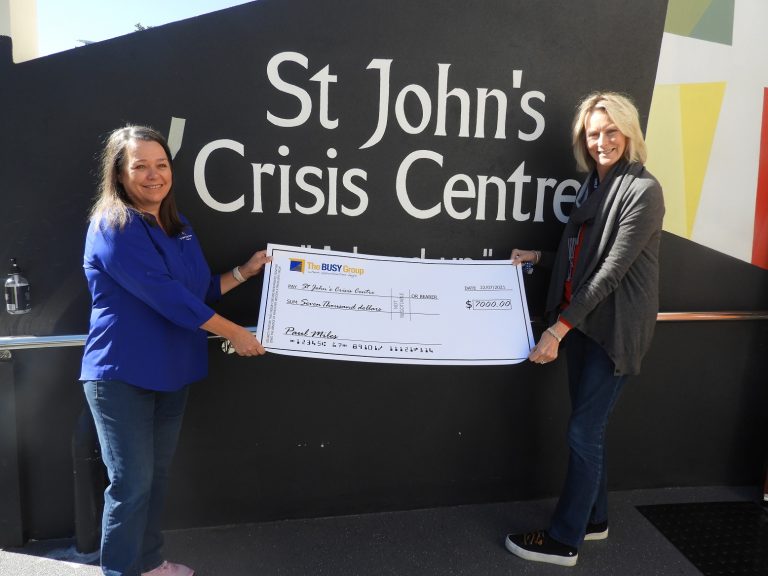Since COVID hit in 2020, the centre saw an initial increase in persons who had relied on the hospitality industry for an income (particularly international students) and sadly, a huge spike in requests from families in domestic violence situations. The centre also had to change it’s way of service delivery to staggered appointments and take away meals.
Dianne Kozik, General Manager of St John’s Crisis Centre said “Pre-COVID our isolated community members could come, have a meal, have a chat and get some companionship. We’ve lost that unfortunately and I am actually just waiting on some tables to come so we can socially distance and re-open the dining room, which I am very excited about”.
The Centre has three main arms to its service for community members which include providing meals to the homeless or to individuals or families who are struggling financially, where the difference of having food for the week means they can then afford to pay their rent or utility bills.
The second vital service the centre provides is the emergency relief where people can come and get help with daily life expenses.
Dianne said of this service “Depending on what they need, we provide an individual assessment that can help provide fuel or food vouchers or chemist scripts. On occasion, we may pay someone’s rent for them if it means that they will be able to sustain themselves in that accommodation. We might pay registration for someone because they are either living in their car, which although not ideal, at least it is keeping them safe. Or they need their car to get to work.
“We also get a lot of families who are struggling because food is so expensive. Imagine having to ask do I feed my family tonight or do I pay the rent? Imagine having to make that decision – people are doing that every day”.
The third service the crisis centre offers is a new outreach program that provides a community nurse and welfare officer. The outreach service is for the many people in the region who have mobility issues or, according to Dianne, may have a domestic violence situation where the perpetrator visits the centre so they can’t come. The centre interviews these people over the phone, determines their needs and requirements and then takes it to them. Once there, the welfare officer and nurse will then assess their home and any further needs. The outreach service may also provide support for doctor appointments, where clients may not understand what the doctor is saying to them, or help to attend a job interview, offering moral support.
Dianne said of this “The $7,000 the BUSY Group have donated has been allocated to the outreach program. It was really wonderful we got that as it means it will pay for the transportation costs of our vehicle going around town, with fuel and that sort of thing.
“BUSY has been supporting us for seven or eight years now, a long time. A lot of our services are not funded (only our emergency relief services are) so we rely on donations for things like running the kitchen and the outreach service. We have to pay rent and wages so its donations from companies like BUSY, organisations like Rotary as well, and the general community that support us and we are so grateful for that. If anyone would like to see what we do, I encourage them to come for a tour or to the centre at 11.30am when our lunch service starts – it will really open your eyes.”
Paul Miles, Managing Director of The BUSY Group said, “We are proud to support St Johns Crisis Centre who do an amazing job assisting our most marginalised community members. Many people are in a vulnerable position since COVID and the work the centre does in supporting people to get back on their feet, to find a solid foundation again is crucial to them moving forward in their lives. We are truly grateful for the work they do and are pleased that the donation will assist towards the Outreach Service”.
For more information on the work St John’s Crisis Centre do visit https://stjohnscc.org.au/

